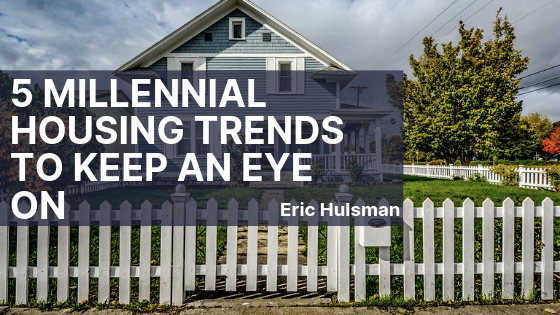Millennials have surpassed boomers as the largest living generation, and generation’s housing preferences are impacting the entire housing market.
Millennials Are Turning to Homeownership
The millennial generation has a reputation for being long-term renters and for living with parents. While there’s some past support for that reputation, many of today’s homebuyers are millennials. By generation, millennials make up the largest share of the homebuyer market as they accounted for 42 percent of homebuyers in 2018.
Millennials Are Open to Fixer-Uppers
About 68 percent of millennials are willing to purchase a fixer-upper in need of major repairs. It’s unclear what’s driving millennials’ interest in fixer-uppers. One possibility is that they believe a fixer-upper represents an affordable way to become a homeowner. That strategy could backfire as the high cost of home repairs could easily wipe away the savings from the home’s low price. Another theory is that millennials are interested in fixer-uppers due to the proliferation of home improvement television shows.
Millennials Are Willing to Move for Affordability
Paltry savings and student loan debt have made affordability a key factor in millennials’ home purchases. Many millennials are moving to cities with affordable housing stock. Buffalo, Pittsburg, Minneapolis, and Charlotte are popular cities for millennial home buying. Also, large numbers of millennials have moved to cities in the midwestern states of Ohio, Michigan, and Wisconsin to find affordable homes. As millennials relocate to Rust Belt cities, they help fuel the revitalization of those communities.
Millennials Don’t Want Houses Built from the 1970s to the 1990s
Millennial homebuyers don’t like the styles of homes built during the 1970s, 1980s, and 1990s. They prefer newer homes that mimic the Mediterranean style. In addition, millennials have a preference for home styles that were popular before the 1970s. These home designs include Mid-Century Modern, Victorians, Greek Revivals, Tudors, Arts and Crafts bungalows, California Missions, and Colonials.
Millennials Expect Technology in Their Homes
Despite their penchant for older homes, millennials expect technology to be integrated into their homes. Older millennials (aged 27 to 36) have adopted Smart Home technology at greater levels than the younger segment of the generation. Thirty-six percent of older millennials already use Smart Home technology. Fifty-eight percent of older millennials who don’t have Smart Home technology have expressed an interest in acquiring it.

